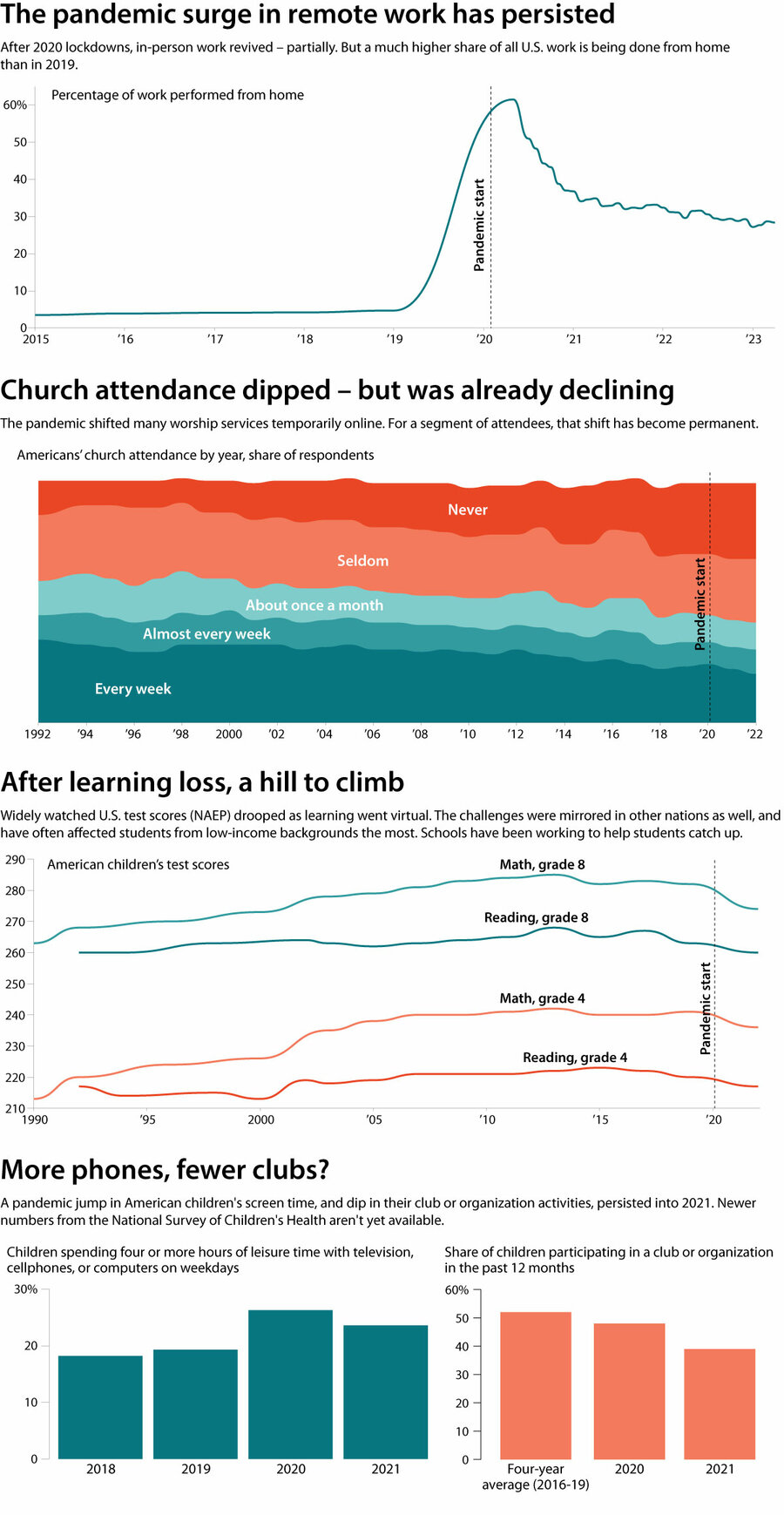Pandemic emergency is over. Societal shifts linger.
May 11 marked the official end of the COVID-19 public health emergency in the United States, coming days after a similar declaration globally by the World Health Organization.
It’s not that medical experts say the pandemic itself has ended. But deaths attributed to the disease (more than 1 million in the U.S. since 2020) have slowed. Special federal resources responding to the pandemic will be winding down.
At its depths, the pandemic stirred public compassion and government assistance – with accompanying fraud. The current transition leaves behind questions about the pandemic’s causes and how the U.S. and other nations can do better at preventing pandemics in the future.
Why We Wrote This
A story focused onThe pandemic health emergency is officially over. But some related societal shifts could be lasting, from more remote work to a rise in children’s screen time.
Broad societal changes are also visible, some of which are highlighted in our graphics package here.
The effects have hardly been one-size-fits-all. For some people, life is back to pre-2020 patterns. Others have seen positive changes, like closer ties to their family. (Predictions of a divorce surge proved unfounded.) And majorities think it’s a good thing to continue offering remote options for working or attending community events.
Even as this summer shows a post-crisis rebound in travel, mental health experts worry about a fraying of social connections. It’s a concern that predates 2020, but recently U.S. Surgeon General Vivek Murthy pointed to its deepening urgency when he declared a different “epidemic” – one of loneliness.
“Each of us can start now, in our own lives” to address this, he urged in a public letter, “by strengthening our connections and relationships.”






